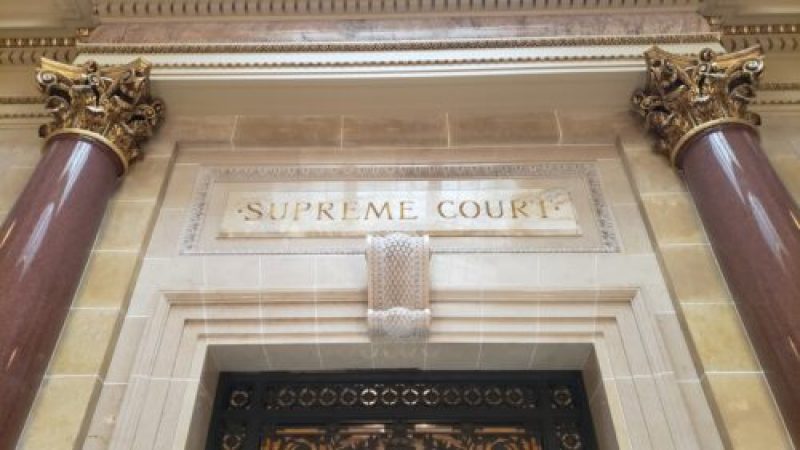State law grants the Department of Health Services broad powers to “act rapidly and decisively” to deal with a health pandemic, including a stay-at-home order that runs through May 26, DOJ argues in a new filing with the Wisconsin Supreme Court.
The state Department of Justice also argues lawmakers are mistakenly asserting the Evers administration should’ve instead gone through the emergency rule process to extend the order originally issued.
Yesterday’s filing comes as GOP lawmakers ask the state Supreme Court for an injunction preventing enforcement of the order DHS Secretary Adrea Palm issued earlier this month. Lawmakers are also asking the court to stay the proposed injunction by six days to give DHS time to begin the emergency rules process, which provides legislative oversight.
But DOJ argued in its brief that request for the emergency rules process “makes no sense on multiple levels.” Rather than a true emergency process, it is only an expedited version of how administrative rules are promulgated. It’s also “completely incompatible with the executive’s duty to respond to a public health crisis quickly and changeably.”
>> WisPolitics is now on the State Affairs network. Get custom keyword notifications, bill tracking and all WisPolitics content. Get the app or access via desktop.
Promulgating an emergency rule can take up to a month, the brief argues. It’s also subject to indefinite suspension by the Joint Committee on Administrative Rules.
“That emergency presents unanticipated threats to the lives of the people and necessitates urgent and changeable responses,” DOJ argues in urging the court to reject the request and issue the injunction. “The power to respond to such crises is a quintessentially executive power.”
In its suit, filed last week, lawyers for GOP lawmakers argued DHS should begin the rulemaking process immediately upon receipt of the complaint in anticipation of losing the case. Senate Majority Leader Scott Fitzgerald, R-Juneau, and Assembly Speaker Robin Vos, R-Rochester, also sent a letter to Palm asking to begin the process of working out a deal on a rule.
Read the brief here.
Read affidavits DOJ filed here and here.
A week after filing the lawsuit, GOP leaders circulated a JCLO ballot saying they have the power to speak on behalf of the Legislature in the court action.
The ballot came as four unions that sought to intervene in the suit argued in a filing yesterday GOP legislative leaders lacked the authority to file the lawsuit and didn’t follow proper procedures in going ahead with it.
The court rejected a motion to intervene from the locals for Madison and Milwaukee teachers, SEIU Healthcare Wisconsin and Amalgamated Transit Union Local 998. It also refused to accept it as a friend-of-the-court filing because it exceeded the maximum length the justices set for such briefs. Still, the unions have until today to reformulate a filing to fit the court’s limit and are expected to do so.
The original brief argued the Legislature is only allowed to intervene in a lawsuit when done by the Joint Committee on Legislative Organization on behalf of the body. The original suit, the brief argues, doesn’t include any suggestion that GOP lawmakers received the required authorization to file the suit.
The ballot, circulated yesterday, states that in this case “Assembly Speaker Vos, Senate President Roth, Assembly Majority Leader Steineke, and Senate Majority Leader Fitzgerald continue to represent the interests of the Legislature and continue to be authorized to speak for and defend the State’s interest.”
The issue has come up in another case that is pending before the state Supreme Court. GOP leaders in that suit sued Dem AG Josh Kaul, accusing him of refusing to comply with a lame-duck law on legislative oversight for settlements the DOJ reached. In that suit, Kaul also raised a standing issue for the GOP leaders that filed the suit, and Republicans-controlled JCLO later expressly said those lawmakers represented the entire Legislature.
That case hasn’t been decided yet.
See the ballot here.
See the union filing here.




